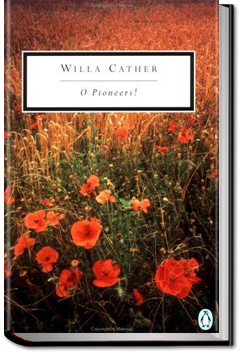

Oscar and Lou want to leave too, but neither their mother nor Alexandra will. Then they learn the Linstrums have also decided to leave. Alexandra, however, starts making plans for where she will relocate the hogs.Īfter years of crop failure, many of the Bergson's neighbors are selling out, even if it means taking a loss. This simply confirms Oscar's and Lou's opinion that Ivar deserves the name Crazy Ivar. Crazy Ivar advises her to keep their hogs clean rather than letting them live in filth and to give them fresh, clean water and good food. Alexandra is concerned about their hogs as the hogs of many of their neighbors are dying. But he is known for healing sick animals. For instance, he sleeps in a hammock, believes in killing no living thing and goes barefoot summer and winter. Alexandra and her brothers Oscar and Lou later visit Ivar, known as Crazy Ivar because of his unorthodox views. Marie lives in Omaha and is visiting her uncle Joe Tovesky.Īlexandra's father is dying, and it is his wish that she run the farm after he is gone. Later, Alexandra finds Emil in the general store with Marie Tovesky. Alexandra asks her neighbor and friend Carl Linstrum to retrieve the kitten. On a windy January day in Hanover, Nebraska, Alexandra Bergson is with her five-year-old brother Emil, whose little kitten has climbed a telegraph pole and is afraid to come down. The book is divided into five parts, each of which has numerous chapters. The novel is also concerned with two romantic relationships, one between Alexandra and family friend Carl Linstrum and the other between Alexandra's brother Emil and the married Marie Shabata. The main character, Alexandra Bergson, inherits the family farmland when her father dies, and she devotes her life to making the farm a viable enterprise at a time when many other immigrant families are giving up and leaving the prairie.

O Pioneers! tells the story of the Bergsons, a family of Swedish-American immigrants in the farm country near the fictional town of Hanover, Nebraska, at the turn of the 20th century. "There are only two or three human stories, and they go on repeating.


 0 kommentar(er)
0 kommentar(er)
